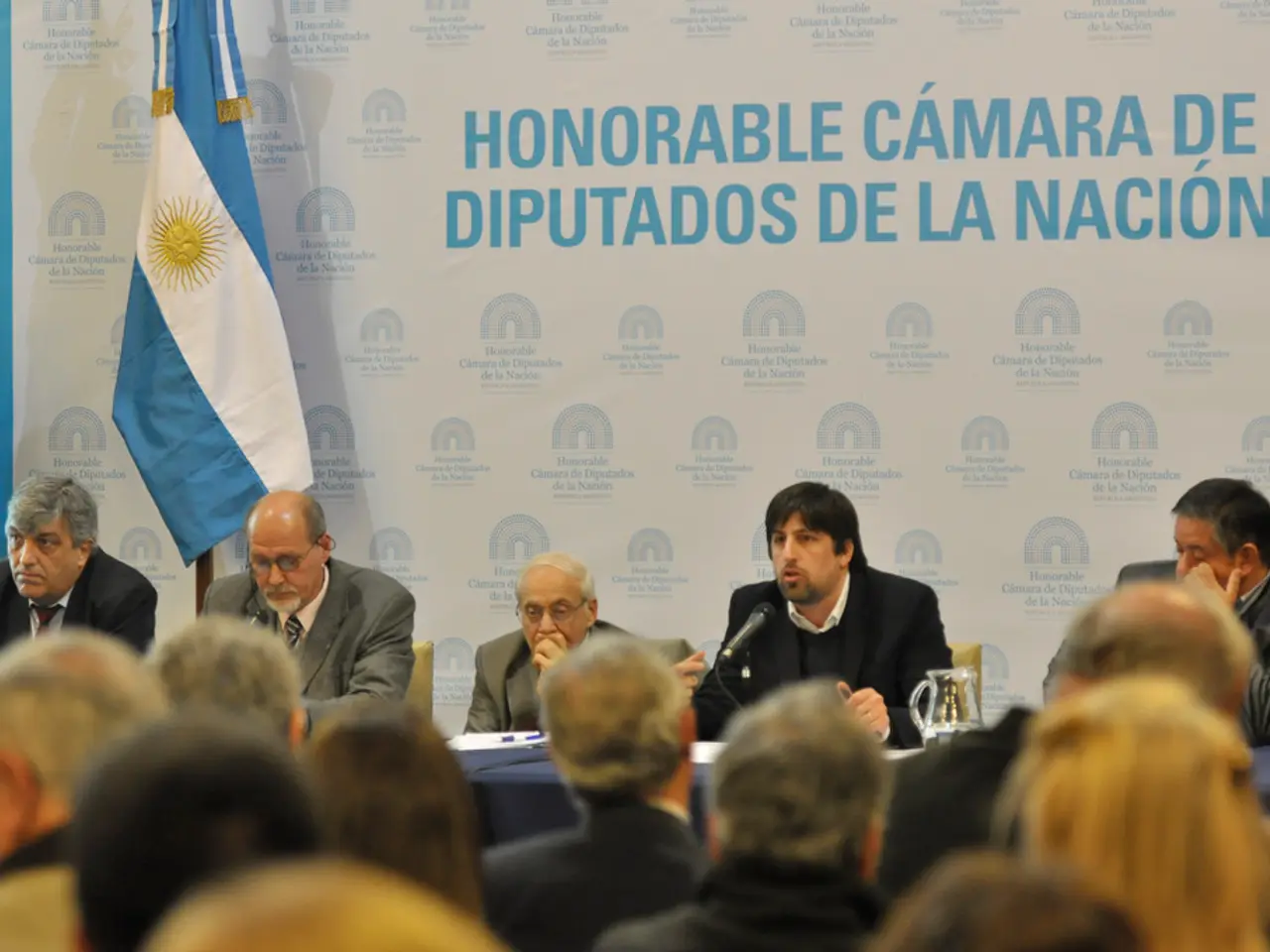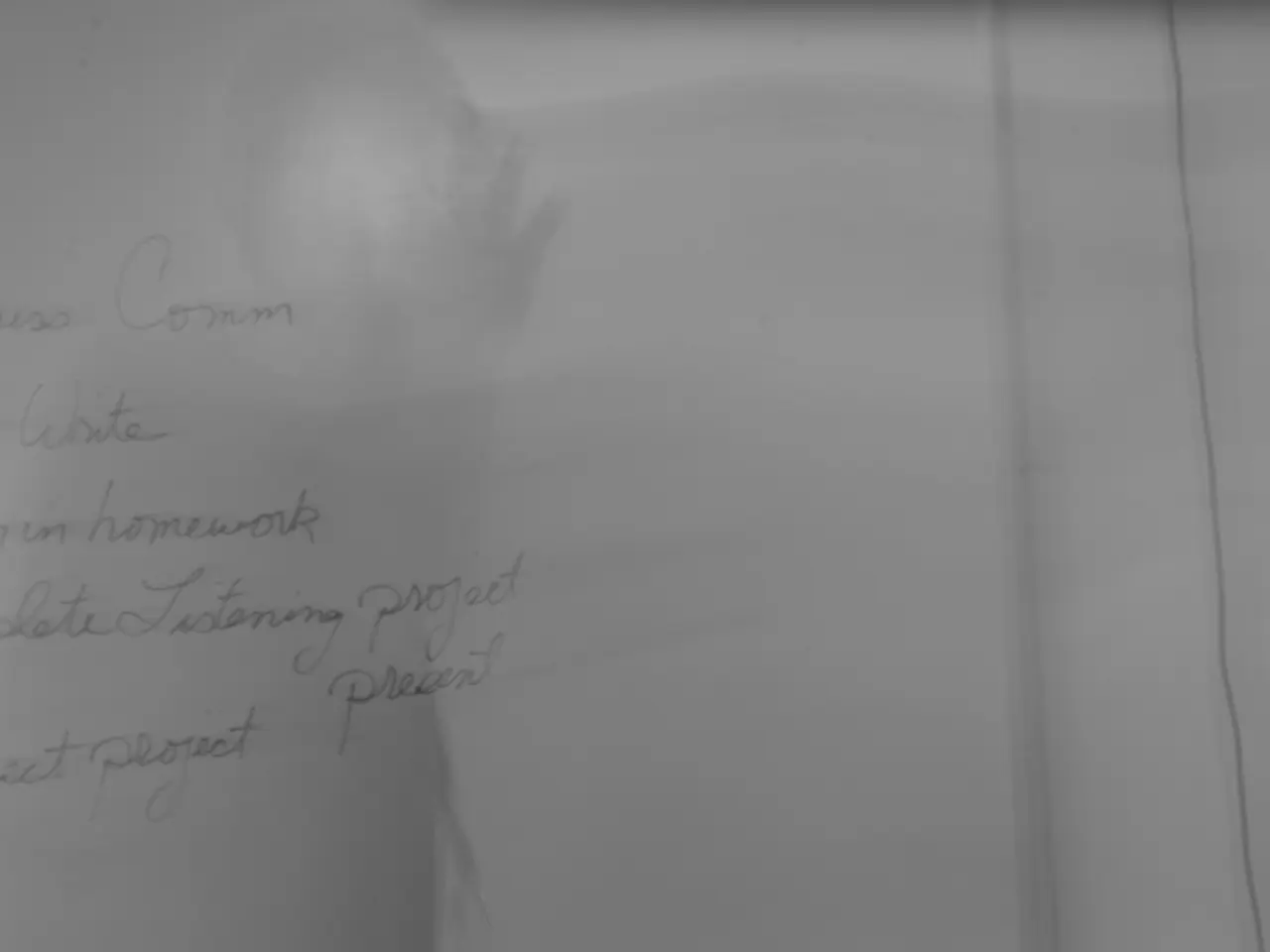Conspiracy involving betrayal of national trust
Israeli Public Figures Call for International Sanctions Against Israel During Gaza Conflict
A group of 31 prominent Israeli public figures, including academics, artists, public intellectuals, and former officials, have written a controversial letter to The Guardian, a British newspaper known for its anti-Israel stance, calling for an immediate ceasefire in the ongoing conflict between Israel and Hamas in Gaza. The letter has sparked controversy and accusations of treason, hypocrisy, and seeking allies among anti-Semites and Israel-haters worldwide.
The signatories, who include Academy Award recipient Yuval Abraham, former Attorney General Michael Ben-Yair, and former Parliament Speaker Avraham Burg, demand that the international community impose "crippling sanctions" on Israel until it ends its current campaign and implements a permanent ceasefire. They accuse Israel of "starving the people of Gaza to death" and "contemplating the forced removal of millions of Palestinians from the strip," framing these actions as tantamount to ethnic cleansing.
The letter has been met with criticism from within Israel, with some politicians calling for targeting those who promote such measures. The writer of this article suggests that the group's allies, including those they summoned, want to destroy them along with all other Jews. The writer also notes that The Guardian gives column inches to the group because they direct their rage against their fellow Jews.
The group is accused of making common cause with genocidal psychopaths, including neo-Nazis, the European fanatical left, and Islamists. The writer warns that treason carries no rewards, suggesting that even if the group were to face relocation due to sanctions, they would still be seen as Jews, Israelis, and Zionists by their allies.
The letter's call for international economic warfare on Israel during a time of war is seen as outrageous and treacherous by many. The group is criticized for their call for crippling sanctions against Israel, with the implication that they may face consequences if such sanctions were to be implemented.
The letter accompanies growing international and domestic condemnation of Israel's two-year war in Gaza and heightened debate within the Jewish diaspora over the war's morality and direction. It also aligns with reports by Israeli human rights groups describing Israeli actions in Gaza as "genocidal."
Despite the overwhelming majority of Israelis keeping the debate within Israel, this group of Israelis has made a significant shift in Israeli public discourse by openly criticizing the government's military conduct and endorsing severe international sanctions, which is considered taboo within Israel. The letter marks a controversial move that has divided the Israeli public and sparked a heated debate on the country's future.
[1] Academy Award recipient Yuval Abraham - Source [2] Former Attorney General Michael Ben-Yair - Source [3] Former Parliament Speaker Avraham Burg - Source
- The controversy surrounding a letter to The Guardian by Israeli public figures, including Academy Award recipient Yuval Abraham, former Attorney General Michael Ben-Yair, and former Parliament Speaker Avraham Burg, has escalated, as they call for crippling international sanctions against Israel during the ongoing conflict in Gaza.
- The politics of war-and-conflicts have become increasingly complex, with general-news outlets publishing reports of Israeli human rights groups describing Israeli actions in Gaza as "genocidal," and this letter by 31 Israeli public figures further fuels the debate.







